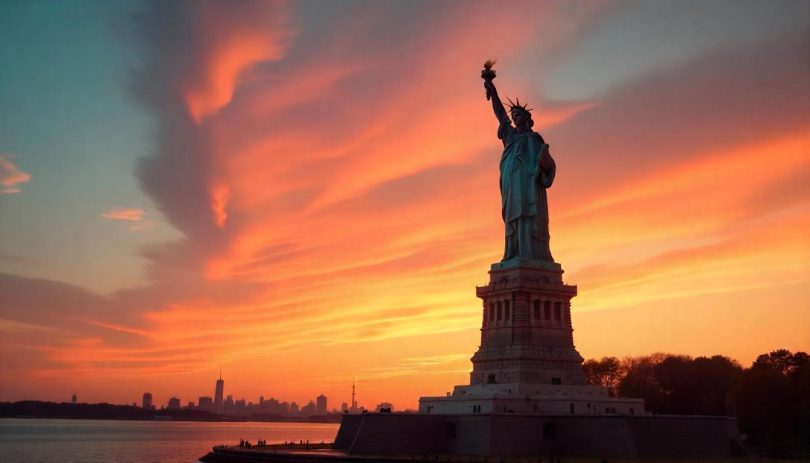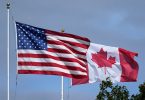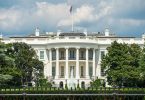Thursday, June 5, 2025
In an ambitious move aimed at reducing wait times for U.S. visa applicants, the Trump administration is considering a controversial $1,000 fee for expedited non-immigrant visa interviews. This proposal would allow tourists and other non-immigrant visa holders to bypass the lengthy queues typically required for visa processing. While the program has garnered attention for its high price tag, it is also attracting legal concerns over its potential implications. In this feature, we will explore the details of this proposed plan, its potential impact on international travelers, and the legal challenges that could arise.
As travel demand continues to rise globally, the United States faces a mounting backlog of visa applications. With millions of tourists and business professionals seeking U.S. entry, the new proposal would expedite the visa process for those willing to pay the extra fee. However, it comes with significant questions about fairness, accessibility, and the possible legal hurdles that could derail its implementation.
Is this fast-track plan truly a solution for the U.S. visa bottleneck, or will it create new obstacles for potential travelers? Let’s break down everything you need to know about this proposed change.
What is the $1,000 US Visa Fast-Track Proposal?
The Trump administration has recently floated the idea of introducing a $1,000 fee for expedited visa interview appointments. This proposal would provide applicants with a premium service that fast-tracks their non-immigrant visa interviews, bypassing the usual wait times. While the current visa application process requires an initial processing fee of approximately $185, this new service would offer an alternative for those looking to accelerate their travel plans.
This expedited option, if implemented, would likely target various types of non-immigrant visa applicants, including tourists, business travelers, students, and short-term workers. The goal is to help relieve the growing backlog of visa applications, which has been exacerbated by the pandemic and ongoing international political tensions.
Key Highlights of the Proposal:
- $1,000 fee for expedited visa interviews
- Faster processing for non-immigrant applicants
- Available to tourists, business travelers, and other short-term visa seekers
- Potential pilot program to begin in December 2025
Why Is This Proposal Being Considered?
The need for expedited visa processing has become increasingly urgent due to the significant visa backlog that many applicants have faced over the last several years. According to the U.S. Department of State, the agency issued 10.4 million non-immigrant visas in the 2023 fiscal year alone. However, delays and lengthy wait times have led to frustration among travelers eager to visit the U.S. for business, tourism, and other reasons.
This new proposal is seen as a potential solution for travelers who can afford to pay the premium fee for faster processing. U.S. officials have acknowledged the challenges in visa scheduling and are exploring ways to improve efficiency, with the introduction of this expedited service appearing to be a key part of their strategy.
However, it’s important to note that the State Department’s legal team has expressed concerns about the potential legal issues surrounding the introduction of a fee-based service that could be deemed as unfair or inconsistent with U.S. legal precedent. These concerns raise questions about whether the proposal will ultimately be approved.
Potential Benefits for Travelers
While the $1,000 fee may seem steep, it comes with the promise of several potential advantages for travelers who require faster visa processing. Here are some of the primary benefits:
- Shorter Wait Times:
Applicants who choose to pay the fee could skip the long queues typically associated with visa interview scheduling. This would allow them to receive their visa approval more quickly, which is especially important for individuals who need to travel urgently. - Increased Convenience:
Travelers would have more flexibility in choosing interview dates and times, without being bound by the usual appointment backlog. - Boost to U.S. Tourism:
By expediting the visa process for tourists, the U.S. could attract more international visitors, which could have a positive impact on the tourism industry and the economy. - Appeal to Business Travelers:
For international professionals and companies requiring quick access to the U.S., this expedited service could prove invaluable in maintaining business continuity.
Concerns About the $1,000 US Visa Fast-Track Plan
Despite the potential advantages, the $1,000 visa fast-track proposal has raised several concerns among critics, particularly regarding fairness and the legal implications.
1. Cost Barriers for Low-Income Applicants
One of the major criticisms of this plan is the additional financial burden it could place on applicants. For many potential travelers, especially from developing countries, the $1,000 fee could be prohibitively expensive, making it difficult for them to take advantage of the expedited service.
2. Legal and Constitutional Challenges
According to internal documents reviewed by Reuters, U.S. government lawyers have expressed concern over the legality of charging a premium fee for expedited services. They argue that setting a fee that exceeds the actual cost of providing the service could violate established Supreme Court precedents on the matter.
The proposal could also face legal challenges from organizations that argue it undermines the fairness of the visa application process. There’s concern that the introduction of a fee-based system could lead to a two-tier visa system, where only wealthy individuals can access faster visa processing.
3. Potential to Increase Backlog for Non-Expedited Applicants
While the expedited service might help some travelers, there is also the possibility that it could create a widening gap between those who can afford to pay for the service and those who cannot. This could result in longer wait times for individuals who choose not to pay the fee, thereby exacerbating the very issue the program is trying to solve.
How Could This Impact International Travel?
The introduction of the $1,000 visa fast-track fee could have several broad implications for international travel to the United States.
- Changes in Travel Trends:
If implemented, the service could shift travel dynamics, particularly in regions where visa wait times are notoriously long. Countries with high volumes of visa applications could see more travelers opting to pay the premium for quicker access. - Increased Immigration Scrutiny:
As part of a broader strategy to tighten immigration policies, the Trump administration has already taken steps to revoke certain student visas and increase scrutiny of visa applicants. The fast-track proposal might be seen as another way to streamline the visa process while maintaining a firm grip on who is allowed to enter the country. - Global Impact on Tourism:
Given the U.S.’s status as one of the most popular international destinations, changes in visa processing could have a significant effect on global tourism trends. Countries that are currently seeing a high volume of U.S. visa applications, such as India and China, might experience shifts in how many citizens are able to visit.
What’s Next for the Proposed Plan?
The $1,000 expedited visa plan could be implemented as early as December 2025 if the U.S. government moves forward with the proposal. However, as noted earlier, significant legal obstacles and public pushback could delay or even halt the program. The State Department is expected to carefully monitor any legal challenges that arise.
In the meantime, travelers and visa applicants should stay informed about developments in the process and any potential changes to the application procedures.
Conclusion
The proposed $1,000 fee for expedited visa interviews offers both potential solutions and concerns for the future of U.S. travel. While the idea of bypassing long wait times for non-immigrant visa holders is appealing to many, its cost, legal risks, and possible inequities remain critical issues that will need to be addressed before any final decisions are made.
For now, U.S. visa applicants should continue to monitor the situation and prepare for potential changes that could significantly impact their travel plans. Whether or not the program moves forward, it will undoubtedly be a significant development in the ongoing efforts to streamline the U.S. immigration system.











